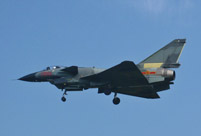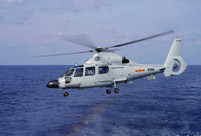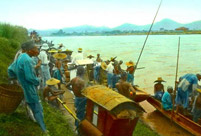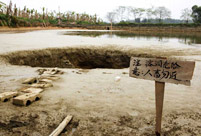

Australian Prime Minister Malcolm Turnbull on Tuesday awarded an A$50 billion ($40 billion) contract to build a new fleet of submarines for Australia to a French enterprise. Japan, which had been a frontrunner in the contest, lost the bid. Japan's Soryu-class submarines are some of the most advanced diesel-electric submarines in the world. Some attributed Japan's failed bid to its lack of experience in military weapons exports and Australia's considerations of avoiding offending China.
However, some Chinese scholars hold that Japan lost the deal because Australia still has concerns over its submarine-building compatibilities. Technological factors weigh more in such a mega project than political factors.
The worst-case scenario seems to have been avoided since Australia snubbed Japan's submarines.
However, as Australia is an ally of the US, these 12 new submarines will beef up the US' strategic strength in the West Pacific, negatively affecting China's strategic security.
Canberra has attached great importance to its economic links with Beijing, its biggest trading partner. But meanwhile, it has offered more support to US military deployment in the Asia-Pacific region that targets China. Nonetheless, Australia is different from Japan. The former is more willing to show its effort of balance between China and the US, while the latter boasts of its partiality to the US.
Canberra needs to know that its submarine plan, be it independent or not, is part of the geopolitical game in the Asia-Pacific and will be used as a bargaining chip for the regional strategic wrestling. Should it add to military pressure against China, it will be compelled to develop stronger counteroffensive capabilities, which in the end runs counter to the national interests of Australia.
Australia after all is located far away from China's continental sea. The simmering tensions between China and the US in the South China Sea are harmful to Australian national security. Therefore, Australia can only secure its best interests by detaching from the South China Sea disputes and not fanning the disputes from outside.
That China will reconstruct the order of the South China Sea, stifle freedom of navigation and block the trade routes of Australia is an illusion. China was accused of changing the status quo of the South China Sea through island building. But it's the US that is a real status quo changer by increasing troop numbers in Darwin, deploying a P-8 Poseidon spy plane to Singapore and reopening five military bases in the Philippines.
If Australia pursues long-term national development and security, it should use its own advantages to help alleviate strategic tensions between China and the US. It should find the correct balance for the sake of peace in the Asia-Pacific.
 The evolution of J-10 fighter
The evolution of J-10 fighter Top 10 Asian beauties in 2016
Top 10 Asian beauties in 2016 What's happening in Xisha Islands?
What's happening in Xisha Islands? When female soldiers meet flowers
When female soldiers meet flowers North Sea Fleet conducts drill in West Pacific Ocean
North Sea Fleet conducts drill in West Pacific Ocean Old photos record the change of Sichuan over a century
Old photos record the change of Sichuan over a century Breathtaking aerial photos of tulip blossoms in C China
Breathtaking aerial photos of tulip blossoms in C China Horrific: Pit swallows 25 tons of fish overnight
Horrific: Pit swallows 25 tons of fish overnight Vietnamese Su-30 fighters fly over Nanwei Island in South China Sea
Vietnamese Su-30 fighters fly over Nanwei Island in South China Sea Top 20 hottest women in the world in 2014
Top 20 hottest women in the world in 2014 Top 10 hardest languages to learn
Top 10 hardest languages to learn 10 Chinese female stars with most beautiful faces
10 Chinese female stars with most beautiful faces China’s Top 10 Unique Bridges, Highways and Roads
China’s Top 10 Unique Bridges, Highways and Roads Affection for young actors takes root, who says you have to be a teen to be a fan?
Affection for young actors takes root, who says you have to be a teen to be a fan? High-end brands closing mainland stores as Chinese spend more overseas
High-end brands closing mainland stores as Chinese spend more overseas Private detectives cash in on China’s rampant marital infidelity
Private detectives cash in on China’s rampant marital infidelity HRW meddles ineptly in deportation case
HRW meddles ineptly in deportation caseDay|Week